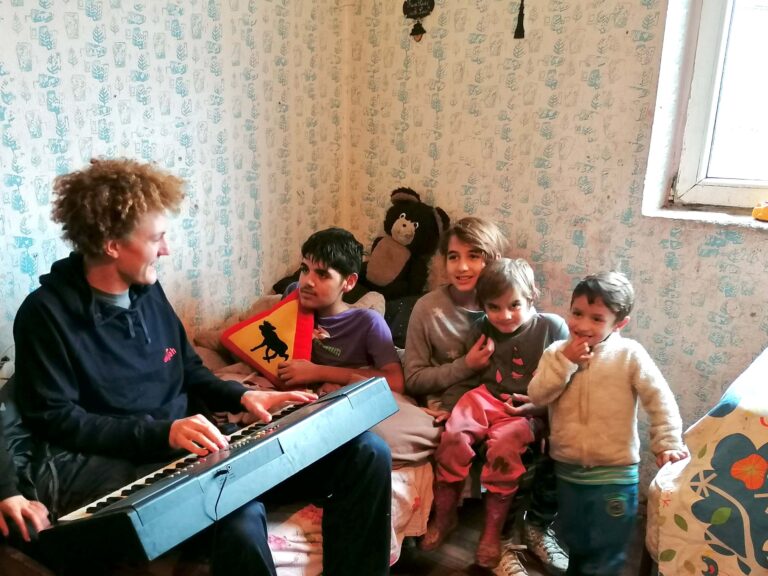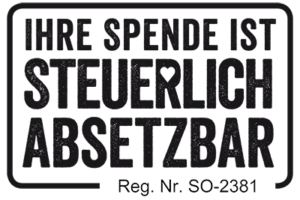
the light that shines through chaos
“Come with me!” Little Anni with the dark face and bright eyes confidently takes my hand. She leads me up into the settlement, children are jumping around to the right and left, everyone is on their feet. We approach a blue house on which, like almost all houses in the settlement, the inscription “ajutat de ELIJAH” is painted next to the house number. This inscription “supported by ELIJAH” is our program for the poorest families.
In recent years new homes have been built for the whole Roma settlement. Her family lives here. Inside there is a lively turmoil, the mood seems charged. Some gray kittens with blue eyes are being dragged around the house like toys by Marian. The pregnant sister-in-law, only fifteen, smokes and is breastfeeding her firstborn. Leftover food, dirty dishes and beer bottles blend in with the general chaos. Next to the wood stove is a folded wheelchair. I step into the bedroom, it’s dark and the soft nagging of a cartoon character sounds from an old television. Fourteen-year-old Nicu looks at me and jokingly rolls his eyes. Then he sticks out his tongue in mockery and smiles wearily. His green eyes sparkle and he always has a snappy comment on his lips. Nicu Moldowan has muscular dystrophy, which is inherited and is considered incurable. His little brothers Rareş and Andrei are already suffering from it, another brother has already died. For several years, Nicu has not been able to walk and it is difficult for him to keep his upper body upright. He no longer grips tightly with his hands, the disease is steadily creeping up in his body.
The semi-serious negotiations begin on his bed, which is covered with old clothes. “Are you coming with me? Oh, I’m sure you’re coming to the social center with me!” On many days he finds a new reason for not having time for me and my planned activities. But his eyes are smiling and I can tell that he just wants to be persuaded. He seems hungry for attention. Nobody gives it to him.
When I have convinced him with the help of many children, siblings and cousins, our journey to Casa Susanna at the foot of the hill begins. I slip one arm under his legs and the other around my shoulders and hoist him into the wheelchair. So we are ready for departure. The further we descend the mountain together, the more children follow us, cling to each other, call out to us. Nicu answers them with a confident voice and not always completely adult.
Our joint program in the social center begins: making music, drawing, occasionally writing. Nicu is difficult to get enthusiastic about one thing for a longer period of time. Here, too, he wants to be persuaded. In a clever way he tricks me into inviting him to the piano. He learns short songs on the keyboard, such as themes from cartoons, children’s songs or old Romanian classics. He only plays with his right hand, the left one has to support to press the buttons. Now I can feel his desire to learn. After playing the piano we often sit in the yard with other boys and talk about girls or which of us has a fuller beard.
These moments are sacred. Every day I go to him on the hill. Will he accept my invitation to come to the social center today? He often blocks, closes himself off, stares into space and lets the chaos pass him by. Nevertheless, he let me feel his closeness, it is full of honesty and strength. I admire his precise powers of observation, his strong will and his determination in tone. The word is his defense because he can’t do it with blows.
I am often helpless in the face of incurability, but in many precious moments that he gives me, I see a sparkle of light. The light I see in his eyes shines through the chaos around him and the tragedy of his illness.
Fridolin from Austria, civil servant 2022/23




